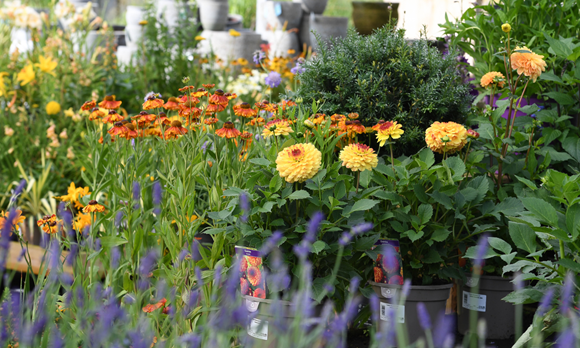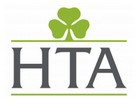The Horticultural Trades Association (HTA) has submitted a comprehensive set of proposals to the Chancellor of the Exchequer ahead of the 2023 Autumn Budget. The asks, urging action on trade, peat-free transition, and SME support, are vital to ensure environmental horticulture can continue to deliver its potential for the UK economy and environment.
Environmental horticulture – from gardens to full-scale landscapes in rural and urban areas – is a crucial part of the nation’s economic and environmental landscape. Contributing £28.8bn to the UK economy, supporting 674,000 jobs and playing a central role in underpinning the UK’s environmental and net-zero goals.

Fran Barnes, Chief Executive of the HTA, said: “Our members – right across the supply chain, from growers to garden centres and manufacturers – have shown remarkable resilience in dealing with volatility and challenges around climate change, high inflation, access to a workforce and changes in regulations. However, government action is essential to help our businesses flourish. We have set out realistic proposals to acknowledge the economic challenges faced by the country, and we strongly believe with targeted investment and a reduction of red tape, we can facilitate growth within environmental horticulture and benefit the broader UK economy and environment.
“Principally, we need to see better regulation around the ease of trading across borders, support for a sustainable transition to peat-free, and a reduction in the regulatory and financial burdens on SMEs. Environmental horticulture touches everybody’s lives, whether in private gardens or public parks and in addition to its economic and environmental delivery, it has been proven to be invaluable to the nation’s health and wellbeing. It is vital that government recognises and acts upon that.”
The HTA's budget asks for 2023 include:
- Resourcing and delivering borders and trade changes: A smooth imports process is critical for the industry, with 96% of UK growers relying on imports of plant products. The HTA is calling for a postponement of the shift to Border Control Posts in April 2024 to ensure a smooth transition, as well as readiness funding for impacted horticultural businesses.
- Supported and sustainable transition to peat-free growing media: The HTA advocates for returning to the agreed 2030 date for professional growers to grow peat-free, highlighting the potential economic and environmental impact of an early ban such as the loss of 100 million UK plants and trees, and seeks government support in the form of matched funding for SMEs, increased R&D support, transition grants, and comprehensive guidance to deliver success.
- Reducing regulatory and financial burdens on SMEs: Approximately 95% of the sector are SMEs. Many are family-owned businesses and have been passed down to the next generation over many decades. The HTA seeks urgent delivery on government commitments to reduce regulatory and financial burdens on SMEs, including exemptions from Biodiversity Net Gain regulations for Protected Horticulture, ensuring longer-term business rates relief, investment in measures to increase water resilience and energy efficiency and addressing the impact of National Living Wage increases.
- Action on retail crime: The HTA estimates that £16 million worth of garden centre turnover was lost to retail crime in 2022, and over 70% of garden centres reported it as an issue. The HTA calls for action to protect retail businesses and enhance police responses to theft incidents.
- Increase accessibility to apprenticeship levy funds and action on skills: The HTA calls for wider reform of the Apprenticeship Levy to make it more accessible for SMEs and encourages larger businesses to transfer their funds to smaller businesses to promote apprenticeship take-up.
For more information: Horticultural Trades Association
Horticultural Trades Association
www.the-hta.org.uk
